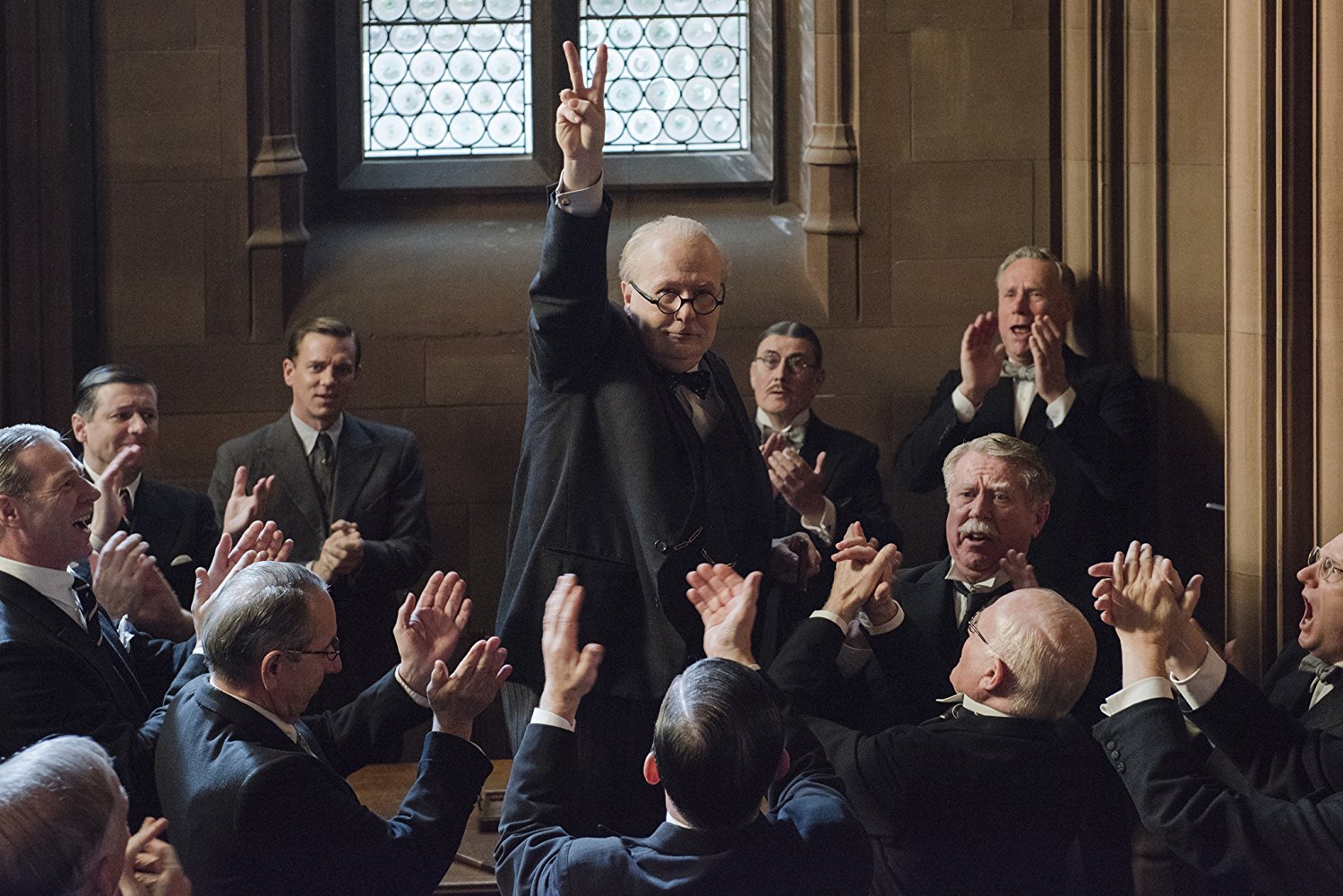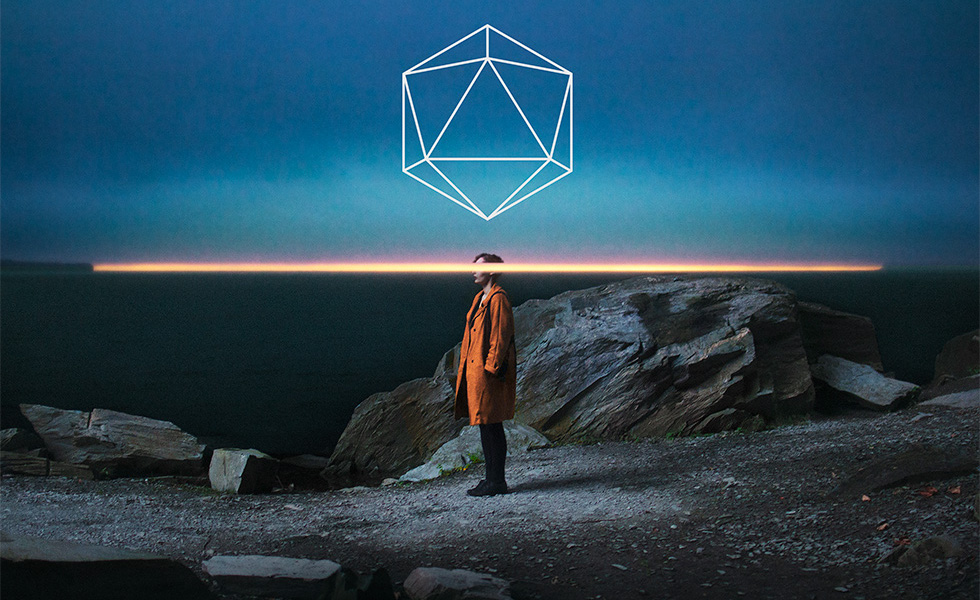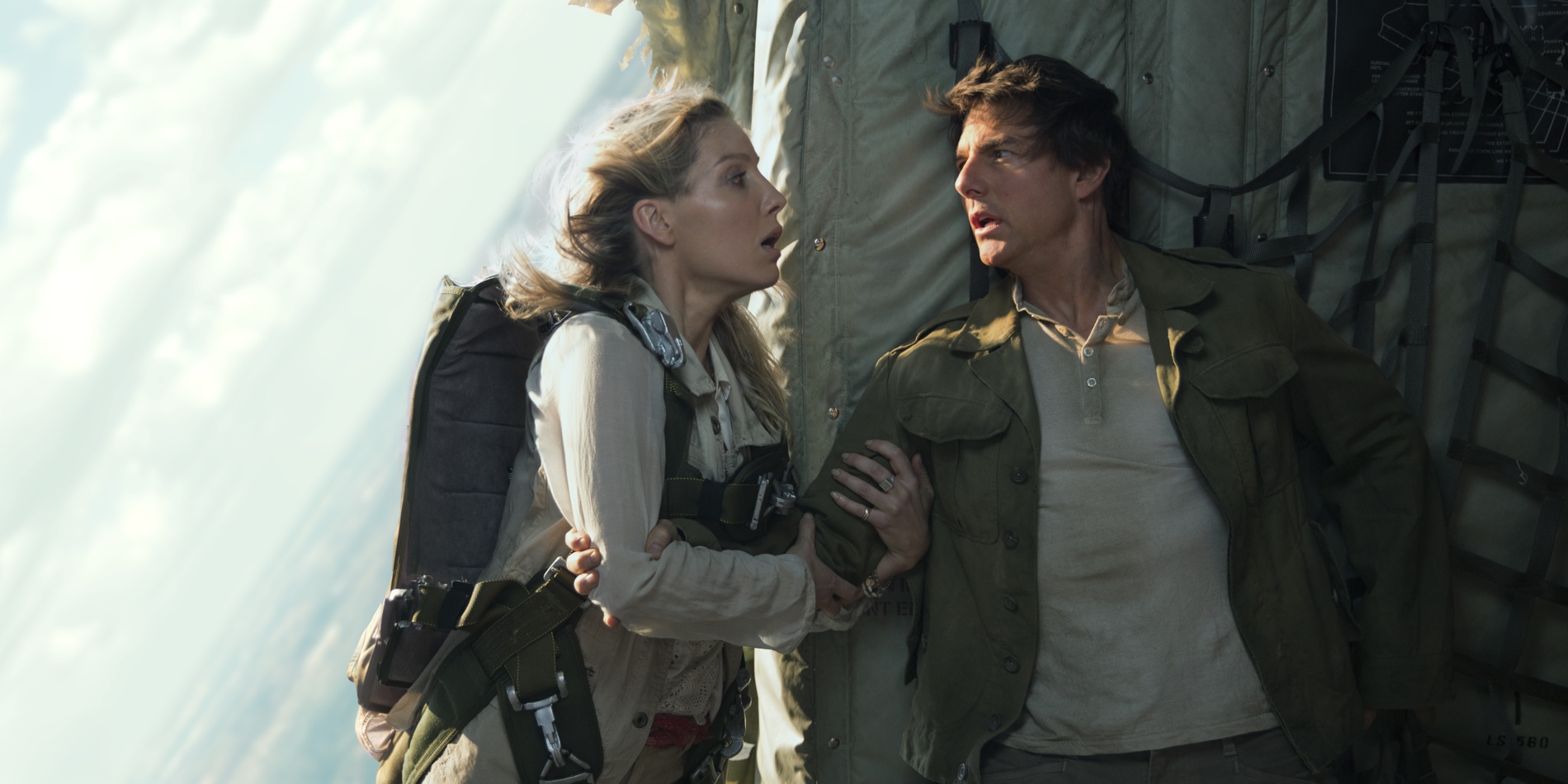The Churchill family looms large in the history of the United Kingdom. For the last 400 years at least one member of that family has been present at court, and Sir Winston Churchill was the culmination of this storied family. As a politician, historian, army officer, alcoholic, and devoted servant of the island nation, Churchill spent his life trying to achieve the ultimate in political power at the time: becoming the head of English government. Darkest Hour tells the story of how, in his early days as prime minister, Churchill convinced Britain to fully commit to waging war against Germany and the Axis powers.
Darkest Hour opens with Winston Churchill’s (Gary Oldman) election to Prime Minister. His selection is a compromise between the two factions in Parliament as neither can put forth a better candidate. Hitler is breaking through Belgium and coming to conquer France, and the members of the British government are split between peace and war as a response to the impending threat. When the German forces push through to France, the entirety of the British army—roughly 300,000 men—is trapped at the small French town of Dunkirk. Determined to carry on fighting tyranny until the bitter end, Churchill is put to the test in trying to keep his war cabinet from initiating peace talks and find a way to bring their army home.
Only about half of the film’s running time is devoted to the historical record, as the rest of it is there to provide context to Churchill’s personality and choices. We see his support network in his loving wife Clementine (Kristin Scott Thomas) and his secretary Elizabeth Layton (Lily James), both of whom play small but significant parts in the film. It also shows his rivals, the previous Prime Minister Neville Chamberlain (Ronald Pickup) and Viscount Halifax (Stephen Dillane) who lead the other political party and are determined to force Churchill to sue for peace. The film takes an even-handed approach to the political conflict, for it doesn’t shy away from the underhanded tactics the opposition employs in its attempts to control the situation, but it also communicates the fear and concern for their country that drives their actions. Most of these scenes offer interesting background details and flesh out Churchill’s character, but occasionally they drift into flagrant feel-good territory and it cheapens the message of the film.
Gary Oldman is, of course, the heart of Darkest Hour and he does an admirable job at playing one of the great men of British history, but occasionally the film is uncomfortably aware that it is serving as a platform for an accomplished actor to show off their skills. The makeup and prosthetics used to transform Oldman into Churchill are perfectly done and he uses all of it to his advantage. The veteran actor changes his voice, mannerisms and body language for the role and Darkest Hour is worth watching for his performance alone. All of the actors in the film are putting their best foot forward, but Oldman’s showing overawes them all as the gregarious and temperamental prime minister.
While Darkest Hour is an interesting examination of the first few weeks of Churchill’s premiership, it suffers from its dedication to portraying him as a golden hero. Despite the gallons of booze, endless cigars, and occasional saucy language, he is always shown to be a kindly old man. The costs of his dedication to public service, alcohol use, and decadent lifestyle are only hinted at and are quickly brushed away before they can be explored. By displaying Churchill in his dressing gown and slippers, the film seeks to imply that it is a peek behind the curtain of public life, but in reality, it presents a manicured and selective picture of a complicated human being. Darkest Hour has an interesting story to tell, but the facts of Winston Churchill’s life as it presents them should be taken with a grain of salt.













